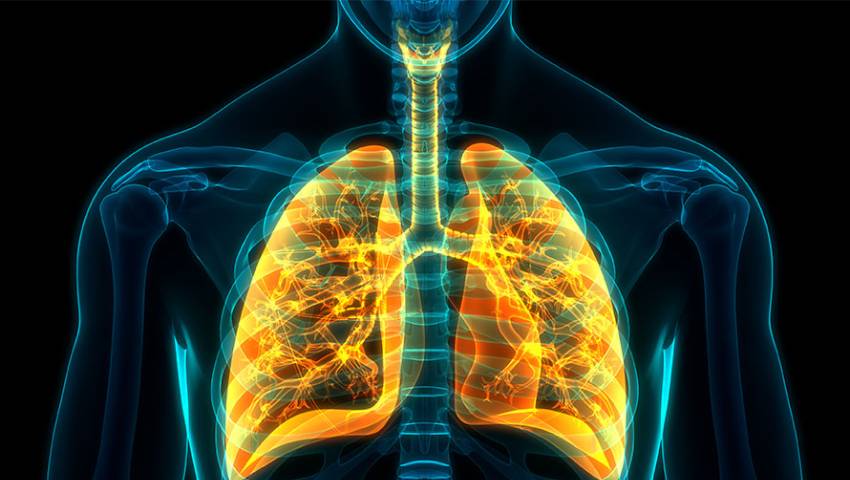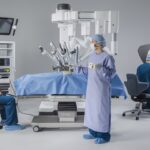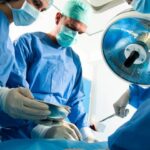
Cancer is a word that can stir up a lot of fear and queries, especially when it comes to the idea of having it without knowing. It’s natural to wonder if you could be living with a cancerous tumor without any obvious signals, or if it’s possible to discover cancer before symptoms appear. According to Dr. M.S.S. Keerthi, a top cancer specialist in Hyderabad, multiple diseases can develop quietly, showing no symptoms until they’ve progressed to a more advanced stage. Still, with the right knowledge and visionary measures, you can boost your chances of catching cancer before, even if you feel perfectly healthy. In this article, we’ll explore how certain cancers can go undetected, the importance of regular screenings, and what you can do to stay one step ahead in defending your health.
Understanding Symptomatic vs. Asymptomatic Cancer:
Cancer can be either symptomatic or asymptomatic. symptomatic diseases are those that present obvious signals or symptoms early on, like a patient cough, unexplained weight loss, or a lump that can be felt. Dr. M.S.S. Keerthi surgical oncologist in Kompally suggests these symptoms prompt people to seek medical concentration, leading to a diagnosis.
Asymptomatic cancers, on the other phase, develop without any conspicuous symptoms, especially in the early stages. This makes them more delicate to determine until they’ve progressed to a more improved stage. Multiple common cancers can be asymptomatic at first, which is why regular screenings are consequently required.
Types of Cancers That May Go Undetected:
Some cancers are more likely to go unnoticed in their early stages, making regular screenings and checks of vital
- Testicular Cancer: Men can frequently go a long time without witnessing symptoms. Regular self-examinations can support discovering a lump early on, but it’s not constantly reliable.
- Cervical Cancer: is frequently asymptomatic until improved stages. Regular Pap smears can discover precancerous cells, allowing for early intervention.
- Pancreatic Cancer: Known for its subtle early symptoms, which frequently go unnoticed until the cancer is developed, leading to low survival rates.
- Breast Cancer: Early-stage breast cancer might not present obvious symptoms, but regular mammograms and self-examinations can assist in discovering it early.
- Prostate Cancer: Generally symptomless in the early stages. A PSA test, a portion of routine blood work, can help detect it early.
- Ovarian Cancer: Symptoms are frequently subtle and nonspecific, like bloating or abdominal pain, and do not appear until the cancer is more improved.
- Lung Cancer: frequently detected in improved stages when symptoms like patient cough or coughing up blood appear. Regular check-ups are crucial for at-risk individuals.
- Skin Cancer: slight changes in moles or spots on the face can be early signals, indeed if you feel fine otherwise. Regular skin checks are important.
Why Regular Screenings Are Crucial?
According to Dr. MSS Keerthi, a renowned cancer doctor in Kushaiguda, some cancers don’t show symptoms until they’re advanced, routine screenings are a powerful tool for early detection. Here’s how various cancers are typically detected:
- Breast Cancer: Mammograms are the best way to detect breast cancer early, even before a lump can be felt.
- Cervical Cancer: Regular Pap smears can discover abnormal cells before they turn into cancer.
- Colon Cancer: Colonoscopies are effective in finding precancerous cysts and early-stage colon cancer.
- Prostate Cancer: PSA blood tests can indicate the presence of prostate cancer indeed when symptoms are not present.
- Skin Cancer: Dermatologist exams and self-checks can help catch skin cancer early.
The Importance of Early Detection:
Early discovery of cancer significantly increases the chances of successful treatment and survival. For example, the 5- year survival rate for localized breast and prostate cancer is nearly 100%. When melanoma, a type of skin cancer, is diagnosed early, the 5- year survival rate is about 99%.
However, not all cancers have routine screening guidelines, making it harder to catch them early. That’s why it’s important to:
- Keep Up With Regular Check-Ups: Annual physicals and routine race work can support catching any abnormalities early on.
- Report New Symptoms: Indeed if they feel minor, new symptoms should be talked over with your doctor.
- Know Your Blood History: If certain diseases run in your blood, talk to your doctor about before or more constant screenings.
When to See a Doctor?
Certain signs should prompt an immediate visit to your doctor, even if you generally feel fine:
- Coughing up blood
- Blood in stools or urine
- A new lump anywhere on your body
- Unexplained weight loss
- Severe, unexplained pain in any part of your body
- Sharing your medical history, any new symptoms, and family history with your doctor can help in making a diagnosis or ruling out cancer as the cause.
Conclusion:
Early discovery is pivotal in the fight against cancer, and Dr. M.S.S. Keerthi, an oncologist in Hyderabad, is here to support you and take visionary steps. With over 15+ years of experience in advanced laparoscopic and robotic surgeries, Dr. M.S.S. Keerthi offers expert care to ensure cancers are detected prematurely, even before symptoms appear. Do not wait — protect your health by booking an appointment with Dr. M.S.S. Keerthi today, and take control of your well-being with personalized, compassionate care







